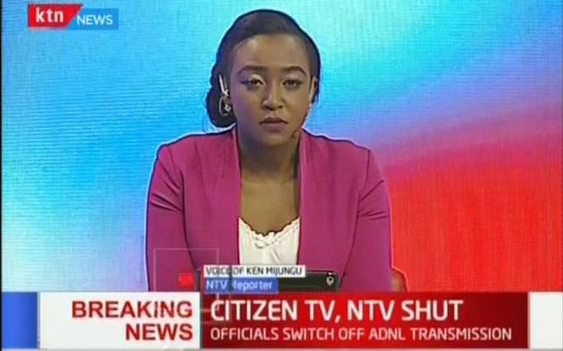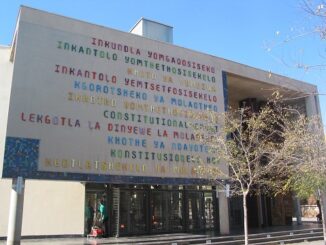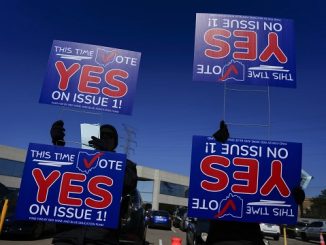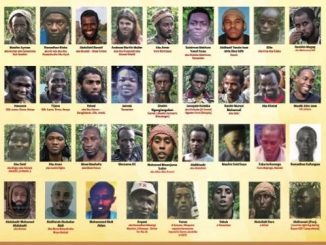
The Kenyan government shutdown of the three largest private TV channels has been suspended by the high court pending a full hearing.
The channels were shut down as they planned to broadcast opposition leader Raila Odinga’s unofficial “inauguration” in Nairobi.
Mr Odinga lost last year’s election and his swearing-in was widely seen as a publicity stunt.
Five civil society organisations asked the State to unconditionally restore TV transmission for three stations that it shut on Tuesday.
Speaking during a press briefing, NMG Editor-in-Chief Tom Mshindi termed the government shutdown move as “a sad moment for media freedom in Kenya.”
“As the fraternity that we are in, together with the civil society organisations, we must stand very firm together because if we don’t, we will perish. We will go back to the days we don’t want to even remember,” Mr Mshindi said..
Mr Mshindi spoke alongside leaders of the Kenya National Commission for Human Rights (KNCHR), Amnesty International, the Inter-Religious Council of Kenya, Article 19 and Katiba Institute.
The organisations said in a joint statement that the government’s closure of TV stations is “a serious threat to the freedom of the media at a delicate political situation in the country”.
“We call on the authorities to stop intimidating the mass media and unconditionally restore the right of Kenyan citizens to a free press. Journalism is not a crime. The government must respect our Constitution at all times,” they said in a statement read by KNCHR’s vice chair George Morara.
Mr Henry Maina, the regional director of Article 19 Eastern Africa, asked the government to use legal means if it has a matter to address with the media.
“You can’t switch off a TV then say you have started investigations. What made you switch it off? If you didn’t know there was a reason, then let them return on air,” he said.
“The illegal act of forcefully switching off the TV stations is an economic sabotage. It has a big economic cost to the media houses and to investors. How is Kenya going to turn around and invite more people to invest in this digital economy that we’re creating when there is uncertainty that rule of law will be followed?” questioned the human rights lawyer.
Mr Houghton Irungu, the executive director of Amnesty International Kenya, also demanded that the Communication Authority director-general Francis Wangusi be admitted back to office as directed by a court.
“Unless we see the reinstatement of a credible Communication Authority for this country, we’ll not see a fair and neutral arbitrator in this process. This is very dangerous for democracy,” he said.
Added Mr Irungu: “We need to be very clear that a free Press is the foundation for democracy. There is no democracy in this world that exists without a free Press.”
At the briefing, it emerged that the journalists’ union is planning legal action against various State actors.
“We are going to have multiple applications in court. Some of the applications are going to target individuals who are giving all these orders to police and even the Communications Authority,” Eric Oduor, the secretary-general of the Kenya Union of Journalists said.
Mr Maina added: “There are going to be multiple applications by different actors; some who are here, and some who are elsewhere because we are clear that if we do not engage into this process legally, then there is going to be a problem.”
Source: nation.co.ke






Be the first to comment